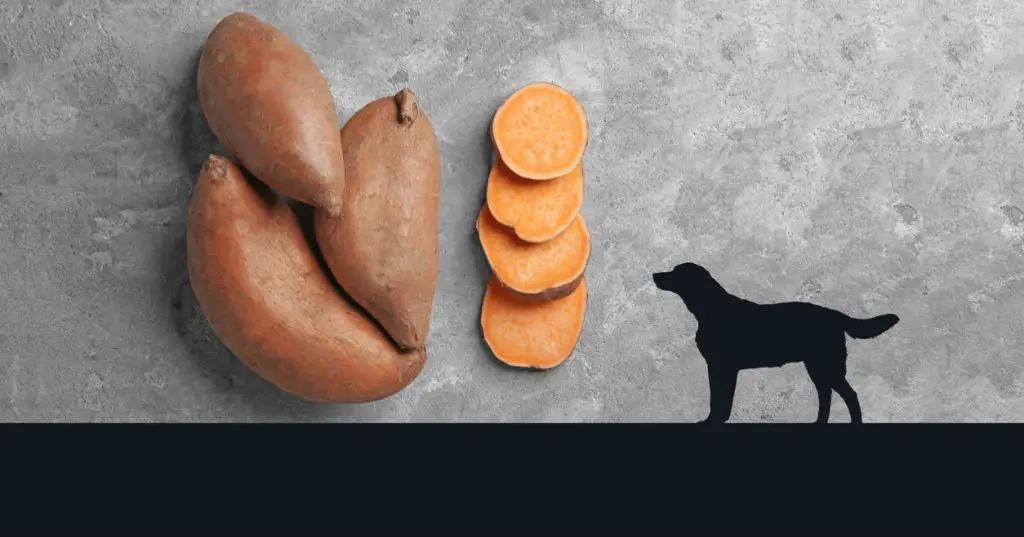Introduction
Pitbulls are a muscular breed of dog that benefit from a proper diet to maintain and build additional muscle mass. While genetics play a role, nutrition is a key factor in developing a strong, muscular physique in pitbulls.
The term “pitbull” encompasses several breeds including the American Pit Bull Terrier, American Staffordshire Terrier, Staffordshire Bull Terrier, and American Bully. These dogs were originally bred for various jobs and sports requiring athleticism and strength, such as bull baiting and dog fighting, before becoming popular as family companion dogs.
All pitbull breeds have naturally lean, muscular frames with broad chests and strong jaws. Maintaining their muscular physique requires careful attention to their nutritional needs, especially protein intake. The right diet will enable pitbulls to gain additional muscle for those who participate in activities and sports relying on strength and endurance.
Key Nutrients for Muscle Growth
Protein is essential for building and maintaining muscle mass in dogs. Look for a dog food that contains quality protein sources like chicken, fish, eggs, and beef. According to this source, dogs need a minimum of 18% protein in their diet for muscle growth, but active or working dogs benefit from 25-32% protein.
Healthy fats are also important, like those found in fish oils, flaxseed, and chicken fat. Fats provide energy for dogs and help their bodies absorb fat-soluble vitamins. According to Bully Max, omega-3 and omega-6 fatty acids support muscle growth and joint health.
Complex carbohydrates from whole grains like brown rice, barley, and oats give dogs long-lasting energy. Look for carbs as about 30-40% of the calories in high performance dog foods.
Key vitamins and minerals for muscle building include vitamin E, calcium, iron, zinc, magnesium, and B vitamins. Multivitamins developed specifically for active dogs can help fill any nutritional gaps. Staying hydrated is also crucial for muscle health and recovery.
High Protein Options
When looking for a high protein dog food for pitbulls, aim for foods that contain at least 30% protein, with quality sources as the primary ingredients like chicken, beef, and fish (Source). Protein helps build lean muscle mass and is essential for pitbulls that are highly active or training.

Some top high protein dog food options include:
- Blue Buffalo Wilderness Chicken Recipe, which contains 34% protein from chicken meal as the first ingredient (Source).
- Diamond Naturals Beef Meal and Rice Formula, with 32% protein from beef meal (Source).
- Merrick Grain Free Salmon and Sweet Potato Recipe, with 38% protein from salmon meal (Source).
Choosing a high protein kibble with whole meats like chicken, beef, or fish as the first few ingredients will help provide the amino acids pitbulls need to develop strong, lean muscles.
Healthy Fat Sources
Fat is essential for providing concentrated calories and energy for muscle growth. However, focus on providing healthy fats like omega fatty acids. Dogs require a balance of omega-3 and omega-6 fatty acids to support skin health and inflammatory response. Good sources of omega-3s include fish, flaxseed, and fish oil supplements. Omega-6s are found in poultry, eggs, vegetable oils, and whole grains (“Which fats are healthy for dogs?”).
When selecting a high-calorie dog food for weight gain, look for around 20% fat content or moderate amounts of added oils, animal fat, and omega fatty acids. Avoid excessive amounts over 25% fat, as this can lead to obesity (“Best Dog Food for Weight Gain”). Focus on high-quality, balanced sources of fats rather than overloaded fat percentages.
Complex Carbs
Complex carbohydrates are an important part of a balanced diet for dogs. They provide a slow, steady source of energy that helps sustain dogs during exercise and activity. Some of the best sources of complex carbs for dogs trying to build muscle include:

Whole grains like brown rice, oats, millet and barley are excellent complex carb choices. They are lower on the glycemic index, meaning they are digested and absorbed more slowly, preventing spikes in blood sugar. Whole grains provide B vitamins, iron, zinc, magnesium and antioxidant compounds.
Sweet potatoes are another nutritious complex carb for dogs. They are high in beta-carotene, vitamin C, potassium and fiber. The fiber aids digestion while the vitamins and minerals support immune health and physical functions. Sweet potatoes are also a good source of antioxidants.
Legumes like peas, lentils and chickpeas supply protein along with complex carbs. They contain amino acids for building muscle as well as vitamins, minerals and antioxidants. The fiber in legumes also promotes healthy digestion. It’s best to cook legumes before feeding to dogs.
When choosing carb sources, look for whole, unprocessed options over refined carbs like white rice. The nutrients, fiber and slow digestion of complex carbs make them the best type to fuel muscle growth in dogs.
Vitamins and Minerals
Getting the right vitamins and minerals is crucial for building muscle in dogs. Some key ones to focus on include:
Calcium – This mineral supports bone health and muscle contractions. Look for a calcium content around 1.2% for puppies or 0.6% for adult dogs (source: https://alphadognutrition.com/collections/dog-muscle-supplements).
Iron – Iron carries oxygen to muscles and helps avoid fatigue. Iron requirements range between 80-200mg/kg depending on life stage (source: https://shop.bullymax.com/products/weight-gain-supplements-dogs).
Zinc – Zinc supports muscle repair and growth by aiding protein synthesis. Look for around 180mg/kg of zinc in dog foods (source: https://www.platinumperformance.com/dogs-cats/dog-cat-conditions/dog-muscle-health-recovery).
Vitamin B – The B vitamins, especially vitamin B12, provide energy for muscles to contract and reload energy stores after exercise (source: https://www.platinumperformance.com/dogs-cats/dog-cat-conditions/dog-muscle-health-recovery).
Hydration
Water is extremely important for building muscle in dogs. Proper hydration helps transport nutrients to muscle cells and flush metabolic waste from the body 1. Dehydration can hinder muscle growth and performance. Health experts recommend getting clean, fresh water available at all times.
In addition to water, broths can help hydrate dogs after exercise. Bone broths provide electrolytes like sodium and potassium that are lost through sweat. Broths made with chicken, beef, or fish can encourage drinking while providing protein for muscle repair 2.
Wet dog food with high moisture content is another way to boost fluid intake. Canned foods typically contain around 75% water. This helps dogs stay hydrated while delivering complete, balanced nutrition with protein, fats, carbs, and essential vitamins and minerals 3.
Meal Frequency
Feeding your pitbull smaller, more frequent meals is optimal for muscle growth. According to Companion-animals.extension.org, “When dogs are fed six to 12 hours prior to exercise, they use more carbohydrates and fat than protein for energy, helping to maintain muscle mass.”
Most experts recommend feeding 3-4 smaller meals per day rather than 1-2 large meals. Perfectlyrawsome.com says “Feeding frequency should be determined based on the dog’s individual needs. Once an estimated daily intake is calculated, the amount of muscle meat, raw meaty bones, and organs should be divided into 3-4 meals per day for optimal digestion and muscle development.”
The smaller meal sizes prevent your pitbull’s blood sugar and insulin from spiking, allowing for more consistent delivery of nutrients to the muscles over the course of the day. This steady supply of amino acids can enhance muscle protein synthesis.
Exercise

Exercise is crucial for building muscle mass in Pit Bulls. Certain types of exercise are especially effective for adding bulk and strength.
Strength Training
Strength training like weight pulling or using resistance bands can help build muscle by forcing the muscles to work against resistance (https://www.emotionalpetsupport.com/proven-tips-on-how-to-increase-pit-bull-strength-and-muscle-naturally/). Start with lower resistance and gradually increase over time. Make sure to monitor for signs of overexertion.
Running
Running and sprint workouts build muscle by utilizing the dog’s body weight for resistance. Start with short distances and work up to longer runs. Be cautious of overheating. Swimming afterwards helps cool down (https://www.youtube.com/watch?v=Du6Pb20pve0).
Swimming
Swimming engages the entire body and is low-impact. The water resistance tones muscles. Start with short swims and work up to longer distances. Make sure the dog can exit the pool easily.
Consult a veterinarian before starting any muscle-building exercise program. Moderate activity with proper rest and nutrition will help your Pit Bull gain muscle mass safely.
Conclusion
In summary, the key points for choosing the best dog food for pitbulls to gain muscle are ensuring high protein content from quality sources like chicken, beef, eggs or fish, supplementing with healthy fats like salmon oil, providing complex carbs from grains or vegetables for energy, and including important vitamins and minerals. Meal frequency and proper exercise are also critical.
Based on research, some of the top recommended brands include Ollie, The Farmer’s Dog, Annamaet Ultra, and Bully Max. These brands offer nutritionally balanced recipes packed with muscle-building protein, digestible carbs, and other nutrients pitbulls need.
When choosing any diet for your pitbull, be sure to consult your veterinarian, as they can provide personalized advice based on your dog’s health, age, and activity level. A customized approach helps ensure your pitbull gets adequate nutrition to maintain muscle mass and thrive.
